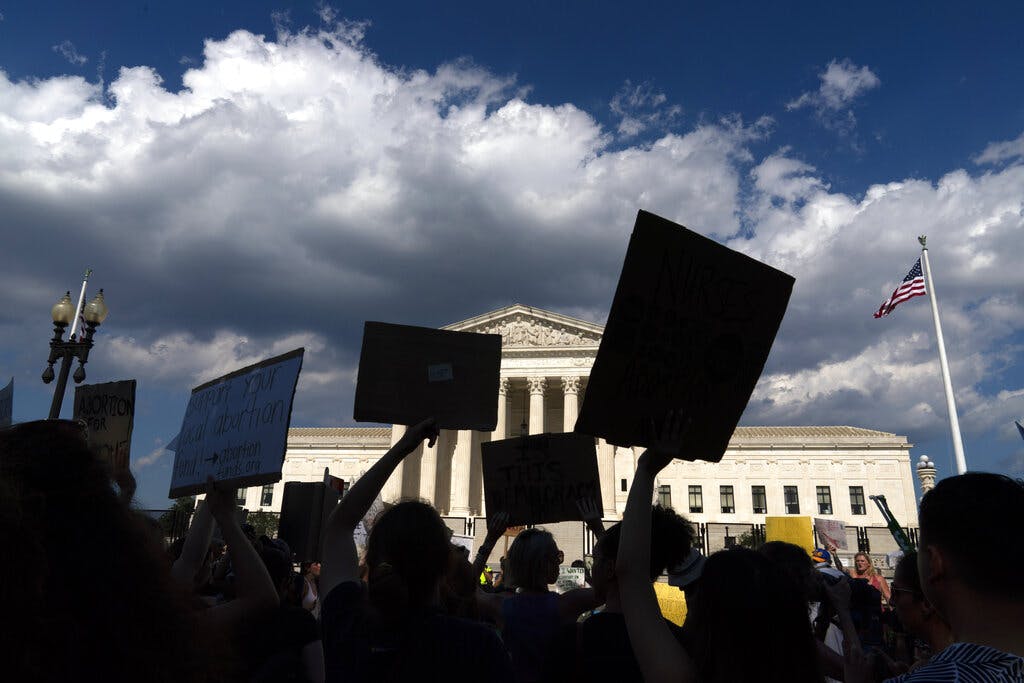Texas Group Sues San Antonio To Block Taxpayer Dollars From Funding Abortion Travel
San Antonio’s $500,000 city fund to help women procure abortions violates state law, a new lawsuit alleges.

The extent to which Democratic cities in red states can assist women in getting abortions is shaping up to be an epic legal battle, as a group sues San Antonio over using tax dollars to pay for out-of-state abortion travel.
The case is the latest in nearly two years of state and city political debate over how to handle abortion in the wake of the Supreme Court’s decision to overturn Roe v. Wade.
In September, San Antonio’s city council voted to appropriate $500,000 of taxpayer money to a disputed “reproductive justice fund,” intended to be used by women to obtain out-of-state abortions, as The New York Sun reported.
Advocates of the fund said it will help women gain access to healthcare, while opponents said taxpayer money shouldn’t be used to help receive abortions, which are illegal in the state, with limited exceptions.
At the federal level, the Hyde Amendment prohibits using Medicaid funds for abortions, except in cases of rape or incest or to preserve the life of the mother, but there is less legal clarity on state funds.
There is national debate over abortion policy in the military as well: Senator Tuberville is in the midst of a months-long hold on military promotions and appointments to protest a Pentagon policy that allows members of the military to be reimbursed for abortion-related travel.
The outcome of the lawsuit against San Antonio “absolutely” will have ripple effects for other cities in Texas and beyond, according to Texas Right to Life, the organization that’s suing the city.
“We know that there are other pro-abortion cities that actually want to go down this road,” the group’s president, John Seago, tells the Sun. “And so this will definitely be a deterrent for other jurisdictions doing the same.”
Texas law prohibits “aiding and abetting” abortions, but there are legal questions as to what that means. “We’re happy to force those issues,” Mr. Seago says. Taxpayer money is also being used to help women procure the abortion pill within Texas, he notes, which is also illegal under state law.
“This represents a city going further than a lot of cities that we’ve seen. In the last two years we’ve seen a lot of cities do resolutions or give speeches,” Mr. Seago says. “This is the most extreme we’ve seen a city in the last two years and that’s why we thought this was the right time to step up and push back on it.”
Since the Dobbs v. Jackson Women’s Health Organization decision, it’s been “a patchwork” that requires these “test cases to show exactly the rights a state has to enforce its laws,” Mr. Seago says.
“Can we stop groups from paying for women to go across the border?” he asks, adding that the goal is not to stop women themselves from traveling. Mr. Seago says some groups in Texas exist “to aid and abet abortions, and that’s really what we’re trying to crack down on.”
When the city council voted to create the fund, council members said at the time that the $500,000 was a small part of the budget and doesn’t warrant the attention it has attracted.
Advocates said it would be used to pay for additional needs beside abortion, such as pregnancy tests, contraception, and menstruation products, as the Sun noted at the time.
“I’m not really buying the talking points that this is going to fund a whole lot of things,” Mr. Seago says. “It kind of reminds me of Planned Parenthood’s old talking points about 3 percent of what they do.”
Earlier this year, 72 percent of voters struck down a proposition that would have decriminalized abortion in the city.
“And yet the city council turns around and allocates half a million dollars to promote abortion,” Mr. Seago says. “So we think this is definitely out of line with what San Antonio voters want.”
The founder of Sueños Sin Fronteras, Laura Molinar, who helped lead the initiative for the reproductive fund, was not immediately available for comment.
She previously told the Sun that the fund would provide support to those “disproportionately impacted by the harsh and barbaric restrictions that the state has put on reproductive rights.”
The aim of the fund, Ms. Molinar said, was to “improve health and healing outcomes for undocumented, pregnant, birthing, and postpartum folks, people, and their families, and we do that through direct support, education, and advocacy.”

